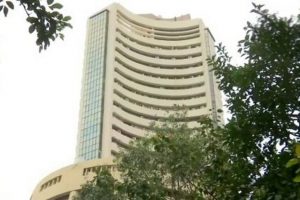Indian stock indices opened on a firm note Friday, following five straight sessions of losses, primarily due to fresh accumulation of stocks by investors following the latest dip.
Although analysts believe that caution ahead of the Lok Sabha election results will continue to remain in investors’ minds.
Sensex and Nifty were 0.7 per cent higher each at 74,389.35 and 22,641.85, respectively, at the time of filing this report. US stocks ended lower on Thursday, with the Nasdaq falling more than 1 per cent.
Through Thursday, risk aversion in Indian stocks continued. After a stellar rally over the past few weeks, markets faced some resistance this week.
Indian benchmark indices witnessed selling pressure ahead of the final phase of the Lok Sabha elections. The latest decline was partly attributable to investors booking profit at higher levels to avoid any potential risks in the market ahead of the Lok Sabha election results.
Lately, barring this week, Indian stock indices continued their rally, reaching fresh lifetime highs, tracking strong global market cues, hopes of Prime Minister Narendra Modi’s comfortable return to office, besides other strong macroeconomic fundamentals. In the past two weeks, Sensex jumped over 3,600 points, on a cumulative basis.
It is now expected that further upmoves will depend on the cues from the exit poll estimates and Q4 India GDP data.
“The market is tantalisingly poised with the possibility of a sharp move based on the exit poll results tomorrow evening,” said VK Vijayakumar, Chief Investment Strategist, at Geojit Financial Services.
“On the other hand, if the exit polls indicate a trend unfavourable from the market perspective, again the crash can be sharp and swift.”
It is now expected that further up moves will depend on the cues from the exit poll estimates, various macroeconomic data that are scheduled later during the week, Q4 India GDP, and US inflation data.
“We suggest aligning trades accordingly and adopting a hedged approach,” said Ajit Mishra – SVP, Research, Religare Broking Ltd.



